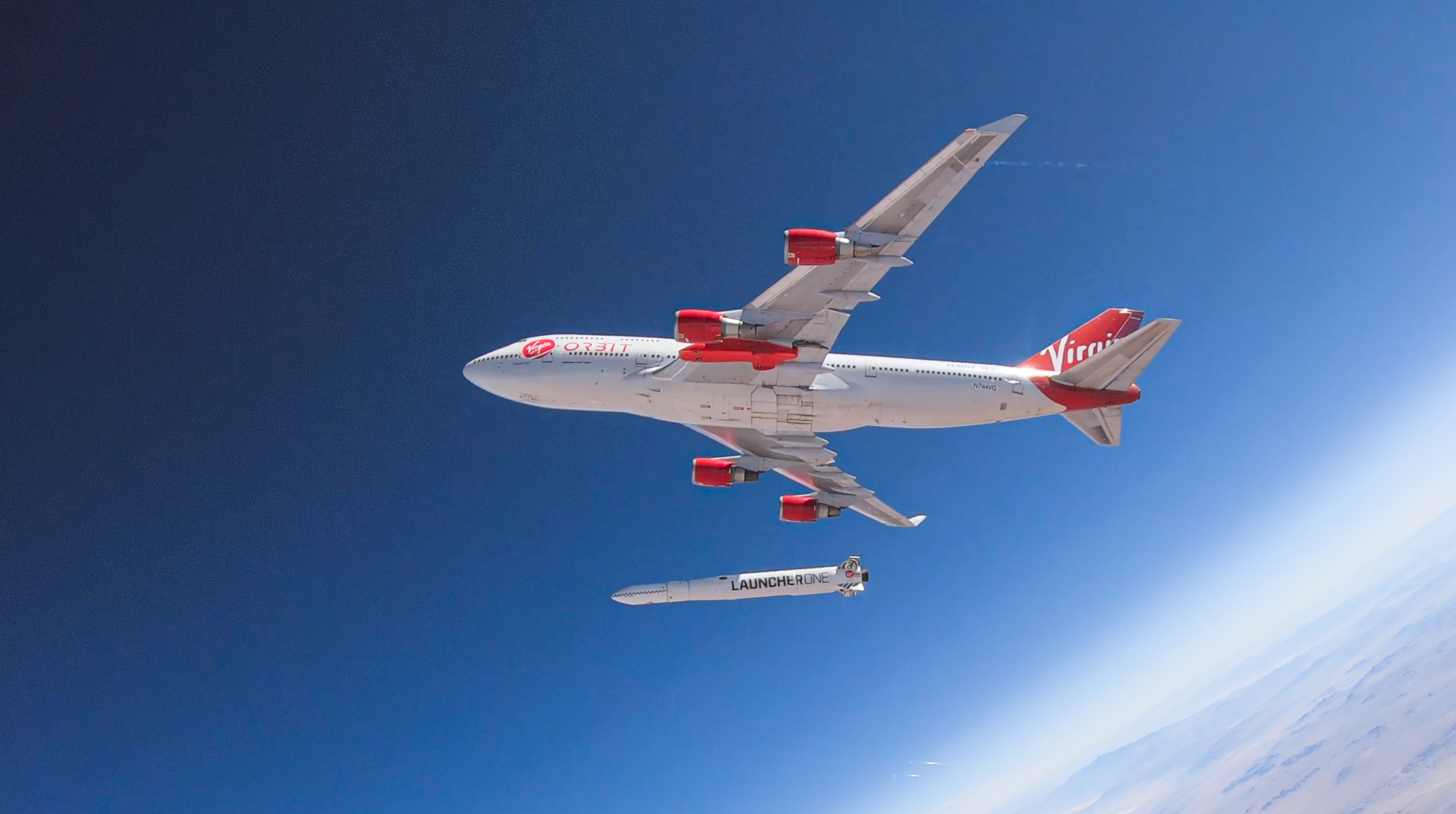Virgin Orbit may aid NATO in Europe with 'responsive launch infrastructure'

Breaking space news, the latest updates on rocket launches, skywatching events and more!
You are now subscribed
Your newsletter sign-up was successful
Want to add more newsletters?

Delivered daily
Daily Newsletter
Breaking space news, the latest updates on rocket launches, skywatching events and more!

Once a month
Watch This Space
Sign up to our monthly entertainment newsletter to keep up with all our coverage of the latest sci-fi and space movies, tv shows, games and books.

Once a week
Night Sky This Week
Discover this week's must-see night sky events, moon phases, and stunning astrophotos. Sign up for our skywatching newsletter and explore the universe with us!

Twice a month
Strange New Words
Space.com's Sci-Fi Reader's Club. Read a sci-fi short story every month and join a virtual community of fellow science fiction fans!
Virgin Orbit could end up becoming an important part of European defense plans and infrastructure.
The company announced today (Oct. 18) that it has signed a letter of intent with Luxembourg's Minister of Defence to study ways that Virgin Orbit could boost the resilience of the North Atlantic Treaty Organization (NATO) and allied states.
Virgin Orbit delivers satellites to orbit using a 70-foot-tall (21 meters) rocket called LauncherOne, which is dropped at altitude from a carrier plane. This air-launch system is flexible and responsive, allowing customers to get their payloads up on short notice from a variety of sites around the world, company representatives say.
In photos: Virgin Orbit's LauncherOne rocket for satellite missions
These characteristics could potentially benefit NATO, Virgin Orbit representatives said. The newly announced agreement will assess the possible advantages and how best to leverage them.
"In this initiative, Virgin Orbit will develop a plan for the development, delivery, mobilization and sustainment of LauncherOne ground support equipment and other responsive launch infrastructure that would be allocated for Allied use," company representatives said in a statement.
"Through this collaboration, Virgin Orbit and the [Luxembourg] Directorate of Defence will engage with partners interested in leveraging this capability and determine the necessary operating constructs and requirements for delivering responsive launch infrastructure to Luxembourg that would allow Allied nations to conduct horizontal launches from a network of active and on-call spaceports in Europe," they added.
Breaking space news, the latest updates on rocket launches, skywatching events and more!
Russia's ongoing invasion of Ukraine has thrown NATO's defensive role, capabilities and needs into starker relief. For example, both Sweden and Finland have now applied for NATO membership, to help protect themselves against potential Russian aggression.
The Ukraine invasion has also shaken up Europe's launch landscape. For instance, just days after the invasion began in February, Russia halted the launch of Soyuz rockets from Europe's Spaceport in French Guiana, citing sanctions imposed by the European Union.
Virgin Orbit has four successful launches under its belt, all of which have lifted off from the Mojave Air and Space Port in California. But the company will expand its geographic footprint soon: Virgin Orbit is gearing up for a launch from Spaceport Cornwall in England next month. It will be the first-ever orbital mission to lift off from the United Kingdom.
Mike Wall is the author of "Out There" (Grand Central Publishing, 2018; illustrated by Karl Tate), a book about the search for alien life. Follow him on Twitter @michaeldwall. Follow us on Twitter @Spacedotcom or on Facebook.

Michael Wall is a Senior Space Writer with Space.com and joined the team in 2010. He primarily covers exoplanets, spaceflight and military space, but has been known to dabble in the space art beat. His book about the search for alien life, "Out There," was published on Nov. 13, 2018. Before becoming a science writer, Michael worked as a herpetologist and wildlife biologist. He has a Ph.D. in evolutionary biology from the University of Sydney, Australia, a bachelor's degree from the University of Arizona, and a graduate certificate in science writing from the University of California, Santa Cruz. To find out what his latest project is, you can follow Michael on Twitter.
